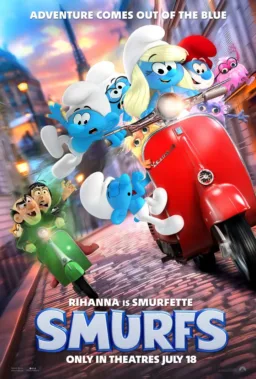It’s funny how often festival films start to resemble one another. On paper, the last three SXSW premieres that I’ve seen have little in common. They are set in and come from different parts of the world, and tell very different stories, and yet within the festival experience you start to draw lines. There’s an easy one to draw with “Daphne,” “A Critically Endangered Species” and “Dara Ju,” a line that connects three troubled protagonists, all defiant against worlds that have let them down to some degree.
Although Peter Mackie Burns’ “Daphne” at first seems overly familiar and unfocused, it relatively quickly develops into something pretty remarkable, thanks mostly to the stunning performance at its center. Daphne may be familiar to filmgoers and TV watchers (she reminded me of the title character in Amazon’s excellent “Fleabag”) but she becomes more and more three-dimensional, thanks in part to Burns’ direction and Nico Mensinga’s script. Most of all, “Daphne” has one of those performances that announces a major talent. I honestly think it’s one of the best I’ll see all year.
Said performance comes from “Into the Badlands” star Emily Beecham as a 31-year-old woman deep in a pit of apathy and cynicism. Almost nothing moves or shakes her quarter-life crisis. She claims not to care or really believe in love. Her mother’s cancer diagnosis? Life goes on. Even after witnessing a store robbery end in a brutal stabbing, she seems unfazed. And yet her drinking has reached a problematic level and loneliness seems to wash over her face every now and then. Even the delivery guy (from the restaurant she was too drunk to remember calling) tells her to get some fresh air and that she looks like shit.
“Daphne” may be a story of a young woman at a crossroads, but it doesn’t wallow in the self-pity or clichés of this subgenre. It feels progressively genuine, and Beecham’s performance is so fully realized that you start to root for her, which is what’s missing from so many of these films. You forget that it’s a performance, and honestly hope that she finds happiness. When there’s a moment late in the film in which someone who clearly cares for her is holding her hand a bit longer than she expects, I actually said “Awww.” So many movies every year blatantly manipulate audiences to try and produce such a response or emotional connection. “Daphne” achieves it by focusing on character and making its title one as believable as possible.

That believability is completely missing from the horrendous “A Critically Endangered Species,” a film that only serves as a reminder that Lena Olin can still deliver a fantastic performance, even if it’s buried in a piece of overwritten nonsense. Imagine the most aggravating pseudo-intellectual, “philosophical” conversation you’ve overheard at Starbucks turned into a one-act play by a college student and you have some idea of what to expect here. But buried in the truly awful script is a reminder that the star of “The Unbearable Lightness of Being” and “Enemies: A Love Story” is still a cinematic force. The title refers to writers and artists, but it could refer to Olin herself, a great actress who has not gotten the parts her talent deserves.
Olin plays Maya, a famous writer who announces that she’s going to kill herself. She has no heirs, and so her estate, including unpublished works, will go to one of the job applicants for the position she’s now advertising. Women need not apply. In fact, she only wants a young man. He better be a good writer, take instructions well, and do a good job going down on her (which, yes, is part of the interview process). The first act of “A Critically Endangered Species” consists of these interviews, as Maya intellectually eviscerates young men and then receives oral pleasure. She speaks about how she comes from “Back when everyone smoked cigarettes and nobody got AIDS” and accuses an applicant of being one of those men who can’t find the clitoris. His response—“A woman’s clitoris?”—being the only time I laughed.
Eventually, Maya finds a pair of bros whom she allows to return to the estate. Of course, they’re oil and water—one is passive and the other aggressive—and Olin acts circles around both young men, throwing the entire film out of whack. And the dialogue, which was once playful, starts to take itself too seriously. “Talking about death is a lot like dividing by zero” being a particularly egregious example. Through all of this clutter, one can see the greatness that still burns within Olin’s acting ability. However, even she can’t save this one. No one could.

Finally, we have Anthony Onah’s directorial debut, a character study about a man overwhelmed by life called “Dara Ju,” which means “better than.” This is what Nigerian-American Seyi Ogunde (Aml Ameen) believes he has to be in most facets of his life. He needs to be better than most of the colleagues at the finance company at which he works, which leads him to cut a legal corner that could get him in serious trouble and to begin a prescription drug habit that he has trouble shaking. He needs to be better than his father, who he can’t forgive for cheating on his mother. And he needs to be the best he can be for his new girlfriend Liz (Lucy Griffiths), although he struggles to do so.
“Dara Ju” is a familiar tale—that of a man overcome by all he wants to be—but it’s a well-told one, thanks in no small part to a subtle, never-manipulative performance by Ameen, and direction from Onah that never calls attention to itself. “Dara Ju” doesn’t feel groundbreaking, but it feels lived-in and genuine, which allows its story to resonate beyond Austin, Texas.












